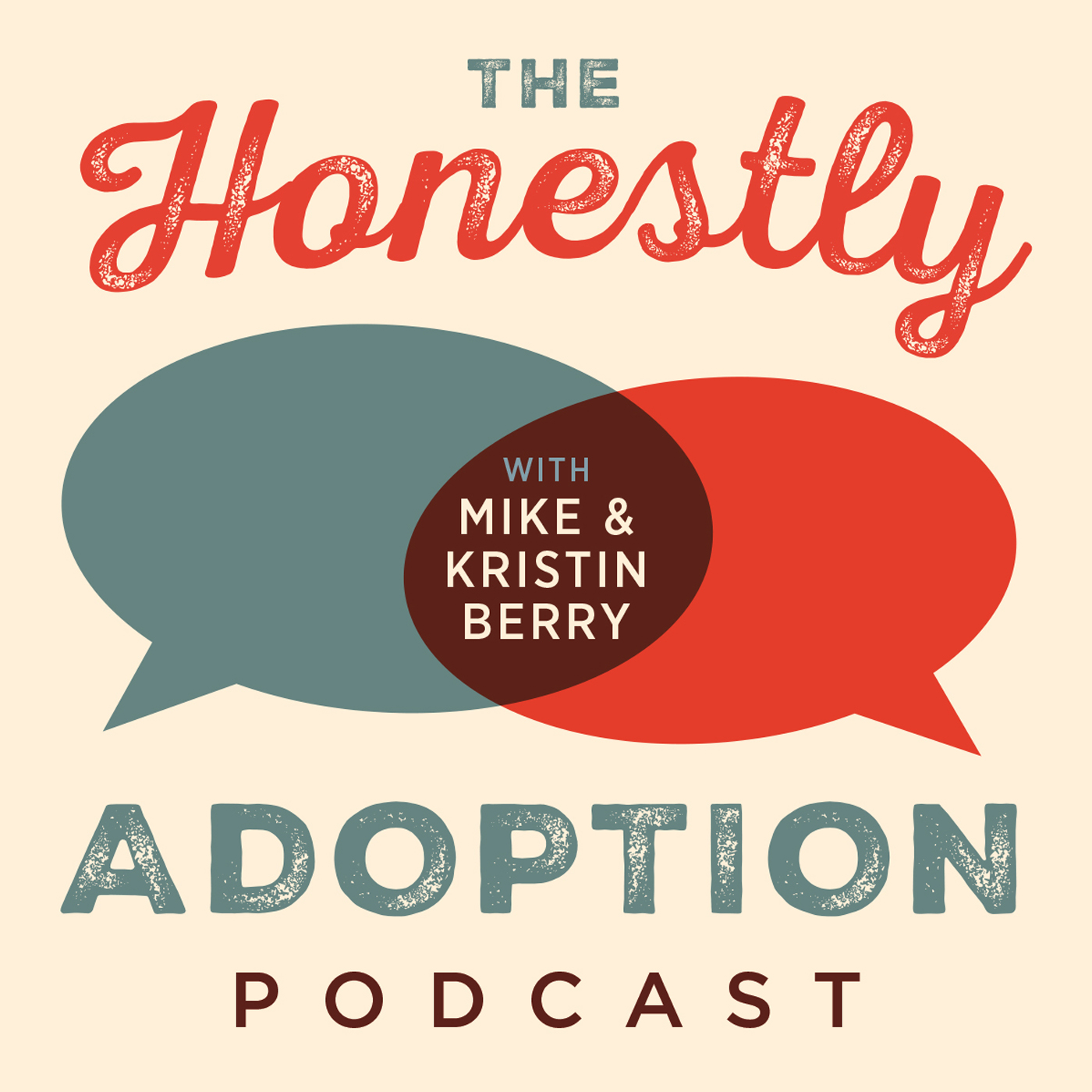We receive hundreds of emails every month from parents who are struggling with children suffering from the effects of prenatal alcohol exposure. The daily challenge of living with children who rage, lack of impulse control, and seem to never learn can be beyond frustrating!

We are extremely blessed this week to have Dr. Ira Chasnoff join us to kick off our very first Honestly Adoption Podcast! Dr. Chasnoff wants us to know that there is hope for both parents and their children as we learn to approach our children by first looking at the major effect and changes alcohol has on the brain. Then, we look beyond and behind the behaviors, and finally, we find regulatory strategies to help our children thrive. Join Mike, Kristin, and Nicole as they chat with Dr. Chasnoff about all this and more!
Listen Now:
[powerpress]
Notes and Quotes from the Show:
“The job of parents and teachers is to look beyond the behaviors that we see and understand the brain basis of those behaviors…then we can begin to provide appropriate interventions.”
“Our strategies have to be proactive.”
What are some proactive strategies parents can use?
“The way children with FASD learn is through REPEAT, REPEAT, REPEAT.”
- Frame Rules in a POSITIVE manner: “We walk” as opposed to “We don’t run.”
- Go over the rules ahead of time.
- Intervene if you see any impulsivity or getting off task.
- Step in and give an (earlier agreed upon) non-verbal cue or verbal cue
- With all children, the more the child feels a part of the parents world, the better. Use the word “we.”
- “You go from least intrusive to most-intrusive so it helps the child retain a feeling of self-efficacy.”
“Children with FASD, in order to learn… the key is REPEAT, REPEAT, REPEAT.”
Besides impulsivity, what other behaviors might children with FASD exhibit?
There are three main areas to consider: Neuro-cognitive Functioning, Self-Regulation, and Adaptive Functioning.
Neurocognitive Functioning:
-
Many children with FASD actually have IQs in the normal or even high range, but still have behavioral difficulties because of issues with executive functioning.
-
They will often not follow a clear direction or cannot figure out how to complete a task.
-
Putting what they know cognitively into action is something they literally cannot follow through on. This is often misinterpreted by teachers and parents as them just not trying.
-
Also they have a great difficulty with working memory which affects areas such as math.
“Moving information from short-term to long-term memory is very difficult for children with FASD, so, REPEAT, REPEAT, REPEAT. ”
Self-Regulation: The ability to regulate yourself, your decisions, and your emotions.
-
Many children with FASD have been diagnosed as bi-polar but they really have emotional dysregulation.
-
“Think of your child not from a mental-health perspective, but from a regulatory perspective.”
-
We want to approach it from a therapeutic place.
-
Many of these children have ADHD, but it is different than genetic ADHD and we need to approach this from regulatory, not a prescriptive medicine starting point.
Adaptive Functioning: The ability to take information you know and apply it to daily living skills.
-
These are brain-based behavioral difficulties and there are interventions that will help if parents approach it from a regulatory perspective.
How do we handle the truly dangerous behaviors on a day to day basis?
“In the moment it is extremely difficult.”
“The best thing you can do is understand that once the child is into a ‘rage,’ there is very little you can do so the key is to try to step in early.”
- Recognize the cues.
- Start with external control.
- Keep a behavioral log so you can begin to recognize patterns of circumstantial triggers and their cues.
- Give multi-sensory input (auditory, visual, tactile). Use timers.
- Early in the rage, give those (earlier agreed upon) cues.
- Help the child move from external controls towards internal regulations. “How is your engine running?” Fidget toys, muscle clenching, strategies for self-calming…
- Remove from situation but timeouts don’t work, they only cause behaviors to escalate. Use cool down instead – give the child the decision to remove himself.
How can we help these children make transitions?
“Children with FASD are more like aircraft carriers than like speed boats. It takes a lot of time and a lot of space to redirect their thought-process.”
- Use visual timers or auditory reminders
- Line up the objects needed to use for the transition
- Make a chart with pictures they can follow
- Give the child more control over the process for a sense of control
How do we help therapists, doctors, and teachers understand our children with FASD?
REPEAT REPEAT REPEAT: “I am concerned, because my child has been diagnosed with FASD and I know the best thing we can do is work together and here’s how I’d like to proceed.”
“You have to be your child’s advocate but at the same time balance that with the understanding that no professional wants to be challenged. ”
Resources and Links.
NTI upstream.com is a multimedia production and publishing company dedicated to advancing the conversation about the issues of health and social welfare. They specialize in producing resources that focus on the healthy development of children and their families.
“Cause and Consequence.” This is a computer-based management system, that has been shown to work from ages 5 and up and has a pathway to follow that helps lead parents to quickly find the intervention that will be most helpful and the least intrusive.
Mystery of Risk In this award-winning book, author and pediatrician Ira J. Chasnoff distills the complex process of attunement that a substance-exposed child and parent undergo as the child grows from infancy to adulthood. Intended for parents, caregivers, and professionals who care for children, this groundbreaking new book provides a lucid examination of the concept of risk. Scientific evidence and true stories of children reveal how prenatal exposure to alcohol and drugs induces a child’s biological vulnerability to environmental stressors that later prey on that vulnerability.
Moment to Moment captures the challenges a family must overcome as children with FASDs reach maturity and attempt to strike out on their own as young adults. Moment to Moment: Teens Growing Up With FASDs is a film that explores the lives of four adolescents with FASDs and the effects that prenatal alcohol exposure has had and continues to have on their journeys to finding independence, fulfillment, and understanding the world around them.
[reminder]We would love to hear your feedback on our new show as well as any questions you have. Leave them in the comment section below. [/reminder]









